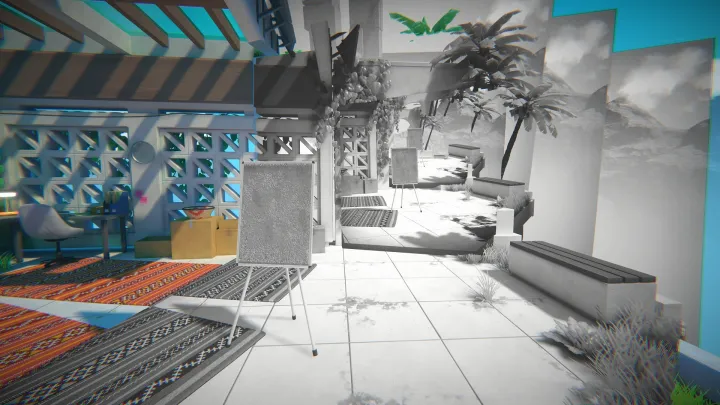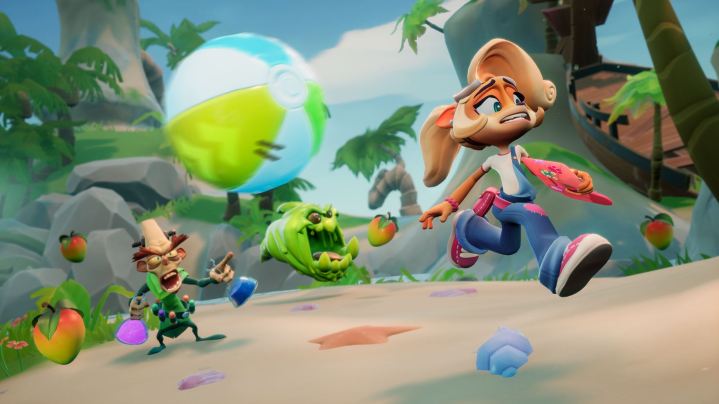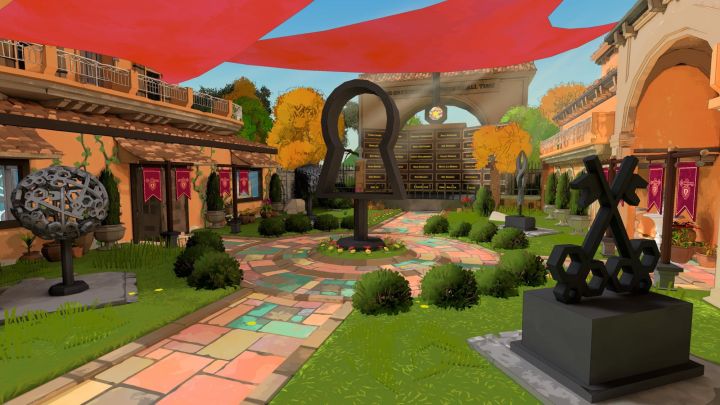While E3 might be gaming’s version of the Super Bowl, I always have more fun exploring the Game Developers Conference. The show is the best way to understand the state of games because it gives creators and fans alike access to insightful panels and a show floor full of games to try. For press, the event is even larger. In addition to the demos at the show proper, developers tend to flood in from around the world to show their games in hotel suites around San Francisco. The entire city turns into a haven for creative independent games.
As I do every year, I tried to pack in as many demos as I could to get a sense of what’s to come in 2023 and beyond. I walked into the event without a clear idea of what was coming down the pipeline, but walked out with a gigantic list of titles to add to my wish lists. I’ve put together a list of 10 of my favorites here, but even that barely scratches the surface. Games like Mina the Hollower, Naiad, Bomb Rush Cyberfunk, and more made for an eclectic week full of surprises. This list reflects that, as no two games here will look quite the same.
Viewfinder

Viewfinder had been on my radar for a good three years before heading into GDC, but even then, I still wasn’t prepared for how much it would blow me away. The indie puzzle game has players placing 2D photographs on top of the world, turning them into fully explorable 3D spaces. Seeing trailers for it beforehand still couldn’t convey how magical the trick felt in practice. Even beyond that, though, Viewfinder simply impressed me as a clever puzzle game that supports multiple creative solutions. Five days later, I can’t stop thinking about it.
Crash Team Rumble

Crash Team Rumble gave me my biggest surprise of the week. I went into my appointment having no idea what to expect, as multiplayer spinoffs of major IP can be a bit of a crapshoot. I didn’t expect to walk out loving the inventive Crash Bandicoot game, which feels so fresh that I can’t quite attach a genre to it. It’s a 4v4 fruit-gathering game that plays out like a cross between a sports game, a MOBA, and Destiny’s Gambit, but with Overwatch character roles. That may sound confusing, but it’s a lot easier to grasp in practice and incredibly fun with a rowdy team of trash-talkers.
Pixel Ripped 1978

The Pixel Ripped series is VR’s best-kept secret, but that could change when Pixel Ripped 1978 launches. Like previous installments, the adventure game takes a deep dive into an important era of video game history. Rather than moving forward following Pixel Ripped 1995, the sequel goes back to the golden age of Atari. What’s exciting, though, is that Atari itself is actually publishing the project, giving developer Arvore access to its library of classic IP. In my demo, I’d play a round of Breakout on a vintage Video Pinball cabinet, then a 2D adventure game inspired by Pitfall!, and actually go inside a video game world loaded with various Atari references. It’s an endearing little slice of game history that’ll give me a great reason to fire up my PSVR2.
Planet of Lana

Every time I see Planet of Lana, it looks better and better. The 2D platformer follows a girl and her catlike creature exploring a lush landscape filled with machines. I’ve deliberately limited my knowledge of it to preserve its story’s mystery, but the new slice I played gave me a better feel for its environmental puzzling and cat-directing dynamic. Though there’s nothing revolutionary at play here, I’m more and more smitten with its relaxing vibe and beautiful art style. With a release date seemingly imminent, I’m looking forward to dipping back into that world as soon as I can.
Dr. Fetus’ Mean Meat Machine

I don’t know that I’ve ever played a game as truly evil as Dr. Fetus’ Mean Meat Machine. The Super Meat Boy spinoff takes the platformer’s punishing philosophy and applies it to a traditional match-four puzzle game. It plays out like a Puyo Puyo game, with players matching colored meat pieces in a well. The twist is that levels are filled with obstacles built to make that task a living hell. It’s a truly rude puzzle game that’ll test your patience, and I’m already loving that sadistic streak based on the few levels I played.
Slime Heroes

My favorite thing about a convention like GDC is sitting down with a game I’ve never heard of and discovering a pleasant surprise. That was exactly the case when I played a bit of Slime Heroes on a whim and walked away delighted. The Zelda-like adventure game has players controlling a Dragon Quest-like slime as it embarks on its own journey. Aside from its adorable tone, what stands out most is its ability system, which lets players combine powers like Kirby 64: The Crystal Shards. It’s a satisfying little combat hook that had me eager to experiment with every skill I picked up. Plus, it allows players to customize their slime and outfit them with hats. And who doesn’t love little hats?
Worldless

Worldless is the kind of game that you just can’t help but admire. The indie Metroidvania boils the genre down to its essence, utilizing a minimalistic art style that instantly grabbed my attention. It’s almost like playing a structuralist version of Ori and the Blind Forest that focuses on core movement feel and general ambiance. On top of that, it features a fascinating turn-based combat system that has players switching between attacks and timing-based blocks. It’s certainly an odd project, but the exact kind of odd I look for at GDC.
Escape Academy: Tournament of Puzzles

Indie puzzle game Escape Academy has only gotten better since its launch with additional DLC, but its upcoming Tournament of Puzzles DLC is a real step up. The two-player mode has friends competing in a race to solve an escape room first. The mode uses procedural generation to swap in new puzzles each time too, adding a much-needed random element to the game. The one round I played was an exhilarating head-to-head brawl that put my logic skills to the test in a fast-paced duel. That could help give an already great puzzle game a dose of replay value that’s been missing since launch.
Venba

I had the pleasure of trying out Venba, a narrative indie game about cooking, at last year’s Tribeca Fest. I was impressed with the slice I played then, which had me learning to make an Indian family recipe, but I’m even more excited after seeing a fresher build of it. It looks like an endearing coming-of-age story about a culture that’s rarely represented in games, and it’s colorful visuals continue to draw me in. With a summer release date planned, I’m looking forward to getting the full meal after taking so many delicious bites.
El Paso, Elsewhere

More than anything else I played during GDC, El Paso, Elsewhere left me wishing I didn’t have to stop playing — the PR people nearly had to pry me off my demo. The neo-noir shooter plays like a PS1 remake of Max Payne, borrowing its “bullet time” shooting mechanic and placing it in a vampire-hunting story. The action is satisfying on its own right, feeling like a 3D version of Hotline Miami at times, but I’m particularly eager to dive deeper into its story, which explores race, addiction, and more. It’s perplexing in all the right ways.



